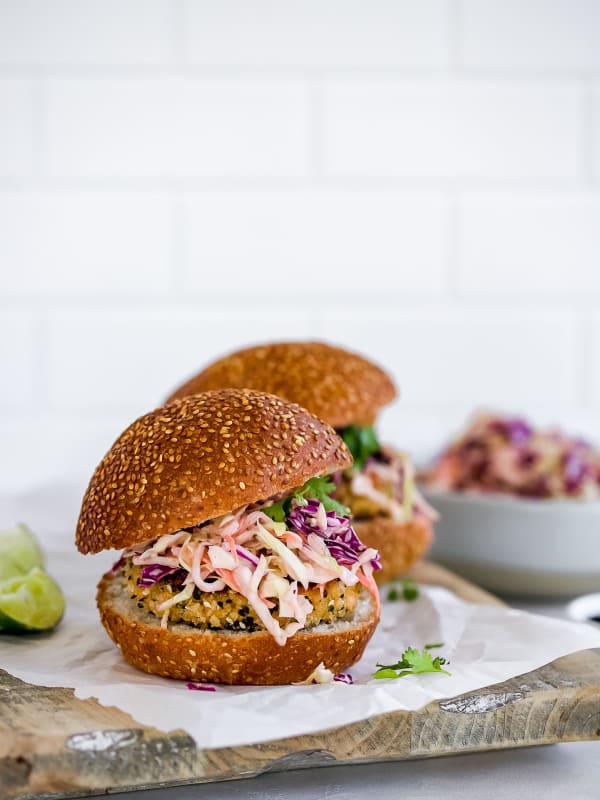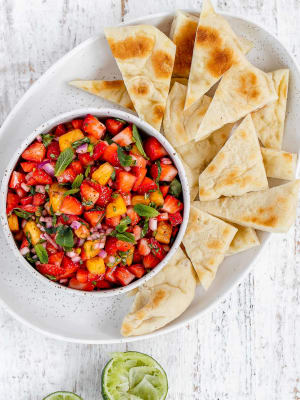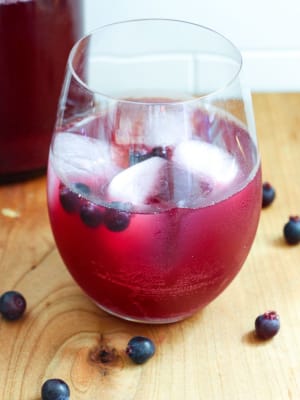Ultra Processed Foods: Dietary Demon or Unjustly Accused?

Ultra Processed Foods: Dietary Demon or Unjustly Accused?
In every era of nutrition, there is a primary supervillain.
In the 1980s, dietary fat was the boogyman, sending us scrambling to replace butter with margarine and ditch our beloved bacon and eggs. Soon afterward, refined sugar became Public Enemy No. 1, casting a shadow of heavy suspicion over cookies and sodas. Then came the rise of Whole Foods and the wave of Certified Organic fever, turning us all into amateur botanists obsessed with avoiding pesticides.
Today, the undisputed scoundrel du jour is ultra-processed foods, a mouthful so commonly decried that it's earned its own acronym: UPFs. These modern nutritional nuisances, earning hundreds of headlines and research papers monthly, are clearly the dietary scapegoat of the hour.
According to research, ultra-processed foods may make up the majority of the food many of us eat, accounting for almost half of all calories consumed in Canada and Australia and more than half of all calories consumed in the United States and the United Kingdom.
The implication is staggering in scale: is it possible that most of what we eat is making us sick? Some have suggested that UPFs are too nebulous a category to add anything of value to the conversation, while others are confident enough to declare that the case is closed, and these "edible food-like substances," to quote Michael Pollan, are simply not good for you.
But what exactly are these UPFs, and do they deserve their infamous reputation?
What are UPFs, and Where Did This Phrase Come From?
Ultra-processed foods were defined by a Brazilian nutrition professor named Carlos Monteiro. The term was formally introduced in 2009 as part of a whole system of processed food classification that would become known as NOVA. The NOVA system categorizes foods into four groups based on their level of processing, ranging from unprocessed or minimally processed foods (Groups 1 to 3) to ultra-processed foods (Group 4).

Here's the NOVA System in a nutshell:
Group 1: Unprocessed or Minimally Processed Foods: Think of whole foods that come straight from nature with very little done. Fresh fruits, vegetables, whole grains, raw nuts, eggs, and meats are great examples. These foods might be cleaned, peeled, sliced, or cooked, but not much, if anything, is added or changed. They're as close to their natural state as possible and retain virtually all their original nutrients.
Group 2: Processed Culinary Ingredients: These are the building blocks of cooking, like olive oil, butter, sugar, and salt. They're made by taking unprocessed foods and transforming them into simple foods—like pressing olives to get oil, milling grains into flour, or refining sugar cane into granulated sugar. These products generally aren't eaten independently but are used as ingredients to make other foods.
Group 3: Processed Foods: Foods that have had extra things added to them to make them last longer or taste better are considered processed. This includes items like canned vegetables, freshly baked bread, and smoked fish. They usually have added salt, sugar, or oil, but they're still quite similar to the original food. These are everyday pantry staples for quick, easy meals that still feel wholesome.
Group 4: Ultra-Processed Foods: These are convenience foods that have undergone many industrial processes and contain ingredients you wouldn't normally find in a kitchen. Think of fizzy drinks, instant noodles, packaged snacks, and ready-to-eat meals. They're designed to be super tasty—even addictively so—and easy to grab on the go, but they often have lots of added sugars, fats, and preservatives and are less nutritious than simpler foods.

Who is This UPF Devil?
UPFs are industrial concoctions made from substances extracted from foods (oils, fats, sugars, starch, protein isolates) or derived from food components (think hydrogenated fats and modified starch). They often contain additives like preservatives, flavour enhancers, and colourings.
Unlike processed foods, which might involve basic cooking or fermentation, UPFs are designed to be super convenient, hyper-palatable, addictive, and highly profitable.
While the NOVA is a systematized hierarchy, it's this final fourth group—the UPFs—that has understandably received all the attention. In 2014, Brazil became the world's first country to officially advise its citizens to avoid UPFs altogether. Since then, a handful of other countries have followed suit, as the impact of Monteiro's ranking system has permeated both public awareness and food policy around the globe.
What is the Science Really Saying? Are They That Bad?
In the 15 years that followed Monteiro's definition of the term, a multitude of scientific studies have linked UPF consumption with various health issues, from obesity, Crohn's disease, hypertension, depression, anxiety, diabetes, heart disease, and cancer. Perhaps most ominously, a prospective cohort study published in the British Medical Journal, which followed 19,899 people for almost six years, found that high consumption of UPFs was associated with a 62 per cent increase in all-cause mortality. The same study found that each additional serving of UPFs a day was associated with an 18 per cent increase in death.
However, the crucial caveat to all of that science is that it's observational. This means it relies on self-reported food questionnaires and can only show associations. It's not capable of demonstrating causation but only correlation, which means that other relevant confounding factors may be at play.
For example, a nutrition researcher named Kevin Hall pointed out that consumption of UPFs tends to go hand-in-hand with lower household income. Therefore, we may be incorrectly blaming them for all the health hazards that accompany the true culprit: poverty.
Hall was so appalled by the low quality of science underpinning the demonization of UPFs that he conducted a study of his own, to date, the only randomized controlled trial to evaluate the causal role of UPFs on health outcomes. The crossover study featured 20 adults receiving ultra-processed or unprocessed food for 14 days each and then switching diets for another 14 days. Sure enough, those in the UPF groups ate more food and gained more weight than their unprocessed counterparts.
So, despite all the hoopla, this study of 20 people is the best direct evidence that UPFs cause an unwanted health outcome (in this case, unwanted weight gain). But, in addition to the small sample size, critics have pointed out that a month-long study is simply inadequate for evaluating a long-term cause of obesity.

Some Problems with Singling Out UPFs
To be clear, no one is arguing that UPFs are good for health or that anyone should go out of their way to put more of them in the shopping cart. But while cutting down on ultra-processed food might seem like a no-brainer if there is even a possibility of nasty risks, casting it as a categorical no-no has significant social and economic implications. For starters, UPFs are cheap and accessible, making them a go-to for many low-income families.
Many, such as breakfast cereals or plant-based milks, are also fortified with vitamins and minerals, providing an affordable source of nutrients. Vilifying these foods could inadvertently exclude many people from the nutrition conversation since unprocessed alternatives can be exorbitantly expensive by comparison.
Plus, for busy working parents, UPFs offer a level of convenience that's hard to beat. Cooking every meal from scratch is a lovely idea, but let's get real, most of us are too busy juggling work, kids, and life. Packaged foods can be a lifesaver when trying to keep the family fed.

The Risk of Overemphasizing Processing
Another thing missing from most commentary on UPFs is what exactly might be so bad about them. If there are preservatives, hydrogenated oils, fillers, dyes, or flavours, in particular, that are making UPFs unhealthy, would it not make more sense to talk about (and regulate) those instead?
Focusing solely on the level of processing can also sidetrack us from other vital nutritional conversations. For instance, a homemade chocolate cake loaded with sugar and butter, though minimally processed according to the NOVA scale, isn't exactly health food. By fixating on the evils of UPFs, we might miss out on crucial considerations of macronutrients and overall dietary patterns. Critics have pointed out that essential discussions of added sugar, glycemic load, fibre content, caloric density, and other nutritional factors, have little to gain from an overbearing emphasis on how processed the food may or may not be.
Processing the Whole Situation
Assessing the impact of UPFs as part of a holistic dietary evaluation makes sense, especially if they account for a tremendous percentage of everything we're eating. But if we zoom in on them and ignore everything else, we might miss the forest for the trees. Nutritional health is complex, involving not just the level of food processing but also the ingredients themselves, the people eating them, and the social and economic determinants of health affecting food access in our society.
So, let's not just replace one villain with another for the sake of sensational headlines. By taking a more nuanced approach to making sense of the situation, we may better understand the intricate nature of UPFs in broader contexts of diet and health, ensuring our efforts lead to meaningful and inclusive improvements in public health.
Askari, M., Heshmati, J., Shahinfar, H., Tripathi, N., & Daneshzad, E. (2020). Ultra-processed food and the risk of overweight and obesity: a systematic review and meta-analysis of observational studies. International journal of obesity (2005), 44(10), 2080–2091. https://doi.org/10.1038/s41366-020-00650-z
Axe, J. (2024, June 9). What Are Ultra-Processed Foods and How Bad Are They for You?. Dr. Axe. https://draxe.com/nutrition/ultra-processed-foods/
British Heart Foundation. (2024, December 4). Ultra-processed foods: How bad are they for your health?. BHF. https://www.bhf.org.uk/informationsupport/heart-matters-magazine/news/behind-the-headlines/ultra-processed-foods
Cassano, O. (2024, July 4). What is ultra-processed food and how can I avoid it?. What Is Ultra-Processed Food and How Can I Avoid It? https://zoe.com/learn/what-is-ultra-processed-food
Chen, Z., Khandpur, N., Desjardins, C., Wang, L., Monteiro, C. A., Rossato, S. L., Fung, T. T., Manson, J. E., Willett, W. C., Rimm, E. B., Hu, F. B., Sun, Q., & Drouin-Chartier, J. P. (2023). Ultra-Processed Food Consumption and Risk of Type 2 Diabetes: Three Large Prospective U.S. Cohort Studies. Diabetes care, 46(7), 1335–1344. https://doi.org/10.2337/dc22-1993
chrome-extension://efaidnbmnnnibpcajpcglclefindmkaj/https://archive.wphna.org/wp-content/uploads/2016/01/WN-2016-7-1-3-28-38-Monteiro-Cannon-Levy-et-al-NOVA.pdf. (n.d.). https://archive.wphna.org/wp-content/uploads/2016/01/WN-2016-7-1-3-28-38-Monteiro-Cannon-Levy-et-al-NOVA.pdf
Cordova, R., Viallon, V., Fontvieille, E., Peruchet-Noray, L., Jansana, A., Wagner, K.-H., Kyrø, C., Tjønneland, A., Katzke, V., Bajracharya, R., Schulze, M. B., Masala, G., Sieri, S., Panico, S., Ricceri, F., Tumino, R., Boer, J. M. A., Verschuren, W. M. M., van der Schouw, Y. T., … Freisling, H. (2023). Consumption of ultra-processed foods and risk of multimorbidity of cancer and cardiometabolic diseases: A multinational cohort study. The Lancet Regional Health - Europe, 35, 100771. https://doi.org/10.1016/j.lanepe.2023.100771
Fiolet, T., Srour, B., Sellem, L., Kesse-Guyot, E., Allès, B., Méjean, C., Deschasaux, M., Fassier, P., Latino-Martel, P., Beslay, M., Hercberg, S., Lavalette, C., Monteiro, C. A., Julia, C., & Touvier, M. (2018). Consumption of ultra-processed foods and cancer risk: Results from NutriNet-Santé prospective cohort. BMJ. https://doi.org/10.1136/bmj.k322
Food-based dietary guidelines - Brazil. Food and Agriculture Organization of the United Nations. (n.d.). https://www.fao.org/nutrition/education/food-based-dietary-guidelines/regions/countries/brazil/en/
Gibney, M. J., Forde, C. C., Mullally, D., & Gibney, G. (n.d.). Ultra-processed foods in human health: A critical appraisal. The American journal of clinical nutrition. https://pubmed.ncbi.nlm.nih.gov/28793996/
Hall, K. D., Ayuketah, A., Brychta, R., Cai, H., Cassimatis, T., Chen, K. Y., Chung, S. T., Costa, E., Courville, A., Darcey, V., Fletcher, L. A., Forde, C. G., Gharib, A. M., Guo, J., Howard, R., Joseph, P. V., McGehee, S., Ouwerkerk, R., Raisinger, K., … Zhou, M. (2019). Ultra-processed diets cause excess calorie intake and weight gain: An inpatient randomized controlled trial of AD Libitum Food Intake. Cell Metabolism, 30(1). https://doi.org/10.1016/j.cmet.2019.05.008 In Defense of Food. Michael Pollan. (2024, May 2). https://michaelpollan.com/books/in-defense-of-food/
Hecht, E. M., Rabil, A., Martinez Steele, E., Abrams, G. A., Ware, D., Landy, D. C., & Hennekens, C. H. (2022). Cross-sectional examination of ultra-processed food consumption and adverse mental health symptoms. Public health nutrition, 25(11), 3225–3234. https://doi.org/10.1017/S1368980022001586
Juul, F., Parekh, N., Martinez-Steele, E., Monteiro, C. A., & Chang, V. W. (2022). Ultra-processed food consumption among US adults from 2001 to 2018. The American journal of clinical nutrition, 115(1), 211–221. https://doi.org/10.1093/ajcn/nqab305
Koios, D., Machado, P., & Lacy-Nichols, J. (2022). Representations of Ultra-Processed Foods: A Global Analysis of How Dietary Guidelines Refer to Levels of Food Processing. International journal of health policy and management, 11(11), 2588–2599. https://doi.org/10.34172/ijhpm.2022.6443
Lane, M. M., Gamage, E., Du, S., Ashtree, D. N., McGuinness, A. J., Gauci, S., Baker, P., Lawrence, M., Rebholz, C. M., Srour, B., Touvier, M., Jacka, F. N., O’Neil, A., Segasby, T., & Marx, W. (2024). Ultra-processed food exposure and Adverse Health Outcomes: Umbrella Review of epidemiological meta-analyses. BMJ. https://doi.org/10.1136/bmj-2023-077310
Machado, P. P., Steele, E. M., Levy, R. B., da Costa Louzada, M. L., Rangan, A., Woods, J., Gill, T., Scrinis, G., & Monteiro, C. A. (2020). Ultra-processed food consumption and obesity in the Australian adult population. Nutrition & diabetes, 10(1), 39. https://doi.org/10.1038/s41387-020-00141-0
McManus, K. D. (2020, January 9). What are ultra-processed foods and are they bad for our health?. Harvard Health. https://www.health.harvard.edu/blog/what-are-ultra-processed-foods-and-are-they-bad-for-our-health-2020010918605
Monteiro, Carlos A. (2009). Nutrition and health. the issue is not food, nor nutrients, so much as processing. Public Health Nutrition, 12(5), 729–731. https://doi.org/10.1017/s1368980009005291
Monteiro, Carlos Augusto, Cannon, G., Lawrence, M., da Costa Louzada, M. L., & Pereira Machado, P. (n.d.). Ultra-processed foods, Diet Quality and human health. https://openknowledge.fao.org/server/api/core/bitstreams/5277b379-0acb-4d97-a6a3-602774104629/content
Nardocci, M., Leclerc, B. S., Louzada, M. L., Monteiro, C. A., Batal, M., & Moubarac, J. C. (2019). Consumption of ultra-processed foods and obesity in Canada. Canadian journal of public health = Revue canadienne de sante publique, 110(1), 4–14. https://doi.org/10.17269/s41997-018-0130-x
Open food facts. (n.d.). https://world.openfoodfacts.org/
Qu, Y., Hu, W., Huang, J., Tan, B., Ma, F., Xing, C., & Yuan, L. (2024). Ultra-processed food consumption and risk of cardiovascular events: a systematic review and dose-response meta-analysis. EClinicalMedicine, 69, 102484. https://doi.org/10.1016/j.eclinm.2024.102484
Rauber, F., da Costa Louzada, M. L., Steele, E. M., de Rezende, L. F. M., Millett, C., Monteiro, C. A., & Levy, R. B. (2019, October 1). Ultra-processed foods and excessive free sugar intake in the UK: A Nationally Representative cross-sectional study. BMJ Open. https://bmjopen.bmj.com/content/9/10/e027546
Rico-Campà, A., Martínez-González, M. A., Alvarez-Alvarez, I., de Deus Mendonça, R., de la Fuente-Arrillaga, C., Gómez-Donoso, C., & Bes-Rastrollo, M. (2024, August 6). Association between consumption of ultra-processed foods and all cause mortality: SUN prospective cohort study. The BMJ. https://www.bmj.com/content/365/bmj.l1949/rr
Srour, B., & Touvier, M. (2021). Ultra-processed foods and human health: What do we already know and what will further research tell us? EClinicalMedicine, 32, 100747. https://doi.org/10.1016/j.eclinm.2021.100747
Steele, E. M., Baraldi, L. G., da CostaLouzada, M. L., Moubarac, J.-C., Mozaffarian, D., & Monteiro, C. A. (2016, January 1). Ultra-processed foods and added sugars in the US diet: Evidence from a nationally representative cross-sectional study. BMJ Open. https://bmjopen.bmj.com/content/6/3/e009892
Teicholz, N. (2024, February 6). Junk food has been rebranded as “ultra-processed.” Junk Food has been Rebranded as “Ultra-processed.” https://unsettledscience.substack.com/p/junk-food-has-been-rebranded-as-ultra?utm_source=substack&utm_medium=email
Vitale, M., Costabile, G., Testa, R., D'Abbronzo, G., Nettore, I. C., Macchia, P. E., & Giacco, R. (2024). Ultra-Processed Foods and Human Health: A Systematic Review and Meta-Analysis of Prospective Cohort Studies. Advances in nutrition (Bethesda, Md.), 15(1), 100121. https://doi.org/10.1016/j.advnut.2023.09.009
Watson, J. (2024, May 10). Ultraprocessed Food and GI Health: Have We Bitten Off More Than We Can Chew?. Medscape. https://www.medscape.com/viewarticle/ultraprocessed-food-and-gi-health-have-we-bitten-more-than-2024a10008z1?form=fpf
Wilson, B. (2020, February 13). How ultra-processed food took over your shopping basket. The Guardian. https://www.theguardian.com/food/2020/feb/13/how-ultra-processed-food-took-over-your-shopping-basket-brazil-carlos-monteiro
Yadav, M. (2023, May 29). What are processed and ultra-processed foods?. Canadian Digestive Health Foundation. https://cdhf.ca/en/what-are-processed-and-ultra-processed-foods/





